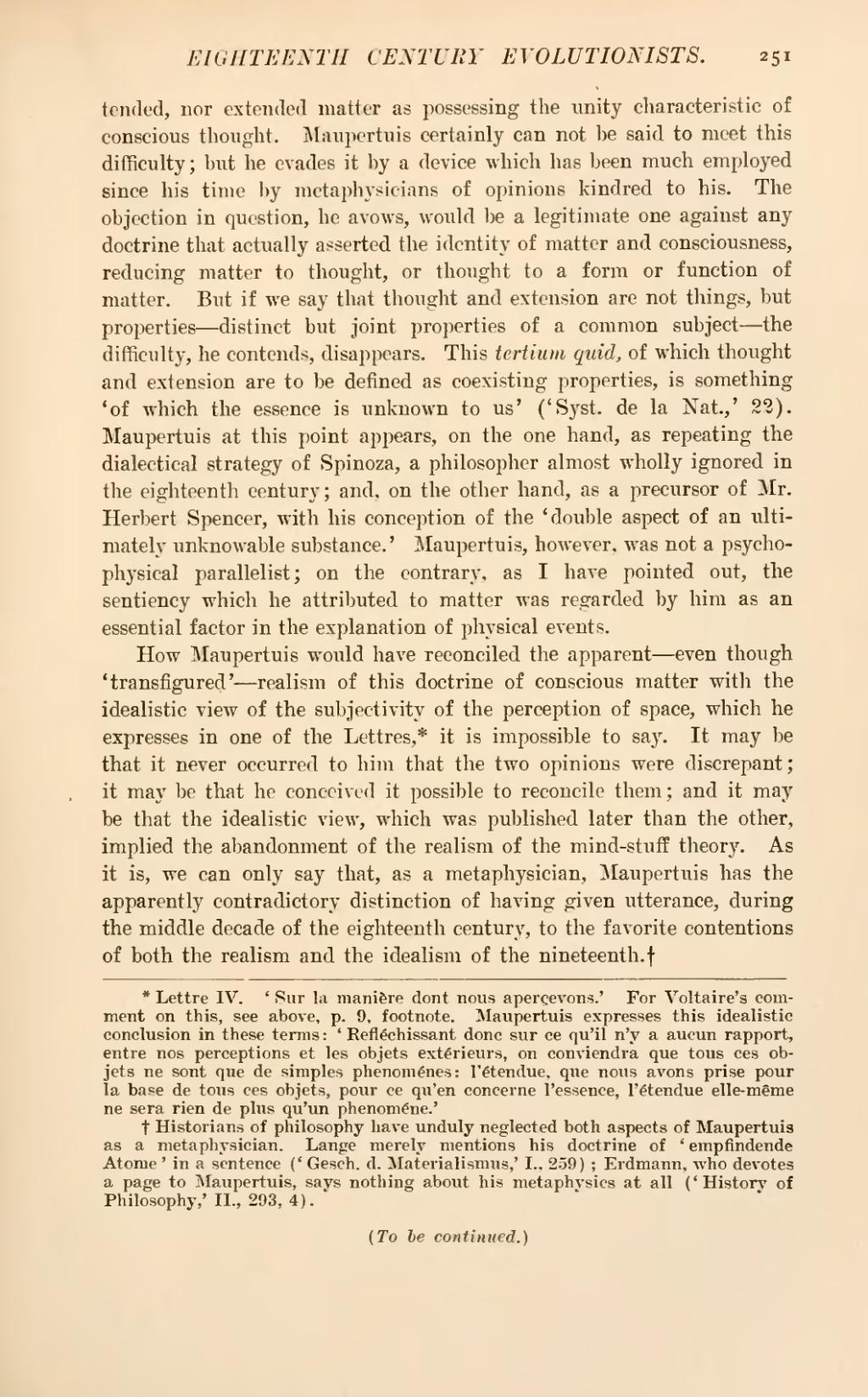tended, nor extended matter as possessing the unity characteristic of conscious thought. Maupertuis certainly can not be said to meet this difficulty; but he evades it by a device which has been much employed since his time by metaphysicians of opinions kindred to his. The objection in question, he avows, would be a legitimate one against any doctrine that actually asserted the identity of matter and consciousness, reducing matter to thought, or thought to a form or function of matter. But if we say that thought and extension are not things, but properties—distinct but joint properties of a common subject—the difficulty, he contends, disappears. This tertium quid, of which thought and extension are to be defined as coexisting properties, is something 'of which the essence is unknown to us' ('Syst. de la Nat.,' 22). Maupertuis at this point appears, on the one hand, as repeating the dialectical strategy of Spinoza, a philosopher almost wholly ignored in the eighteenth century; and, on the other hand, as a precursor of Mr. Herbert Spencer, with his conception of the 'double aspect of an ultimately unknowable substance. 'Maupertuis, however, was not a psychophysical parallelist; on the contrary, as I have pointed out, the sentiency which he attributed to matter was regarded by him as an essential factor in the explanation of physical events.
How Maupertuis would have reconciled the apparent—even though 'transfigured'—realism of this doctrine of conscious matter with the idealistic view of the subjectivity of the perception of space, which he expresses in one of the Lettres,[1] it is impossible to say. It may be that it never occurred to him that the two opinions were discrepant; it may be that he conceived it possible to reconcile them; and it may be that the idealistic view, which was published later than the other, implied the abandonment of the realism of the mind-stuff theory. As it is, we can only say that, as a metaphysician, Maupertuis has the apparently contradictory distinction of having given utterance, during the middle decade of the eighteenth century, to the favorite contentions of both the realism and the idealism of the nineteenth.[2]
(To be continued.)
- ↑ Lettre IV. 'Sur la manière dont nous aperçevons.' For Voltaire's comment on this, see above, p. 9, footnote. Maupertuis expresses this idealistic conclusion in these terms: 'Refléchissant done sur ce qu'il n'y a aucun rapport, entre nos perceptions et les objets extérieurs, on conviendra que tous ces objets ne sont que de simples phenoménes: l'étendue, que nous avons prise pour la base de tous ces objets, pour ce qu'en concerne l'essence, l'étendue elle-même ne sera rien de plus qu'un phenoméne.'
- ↑ Historians of philosophy have unduly neglected both aspects of Maupertuis as a metaphysician. Lange merely mentions his doctrine of 'empfindende Atome' in a sentence ('Gesch. d. Materialismus,' I., 259); Erdmann, who devotes a page to Maupertuis, says nothing about his metaphysics at all ('History of Philosophy,' II., 293, 4).

